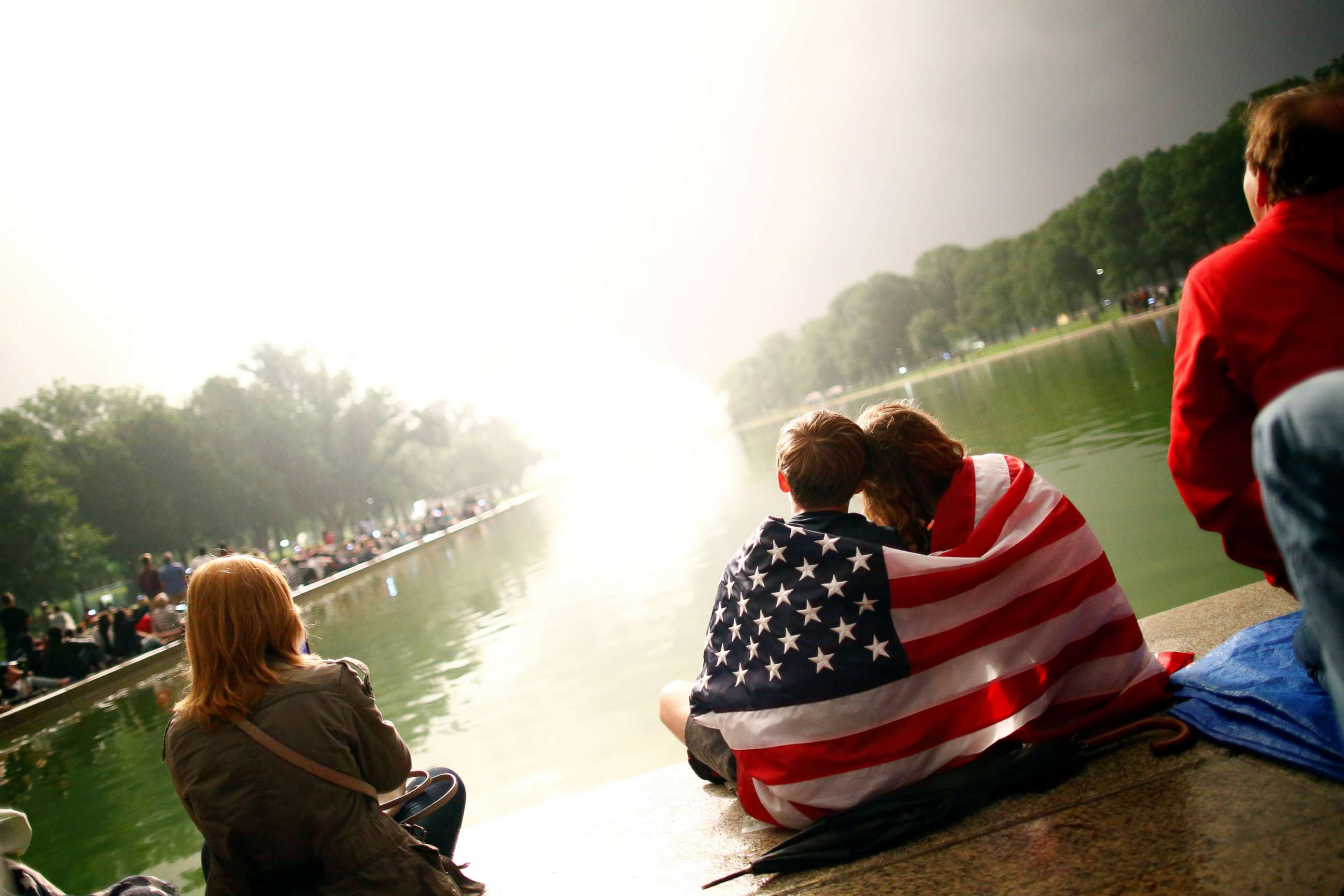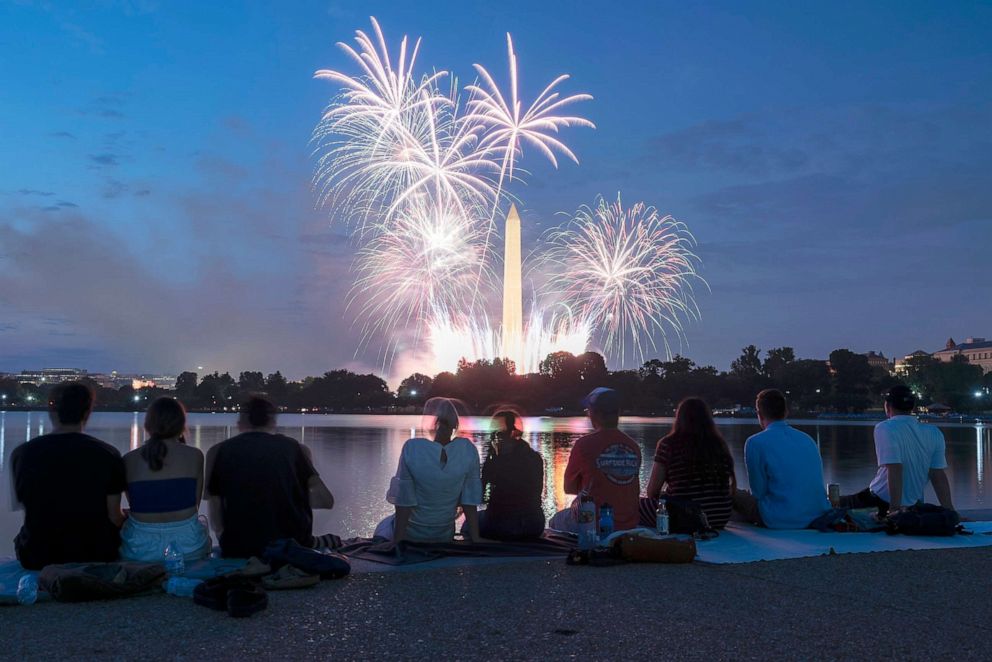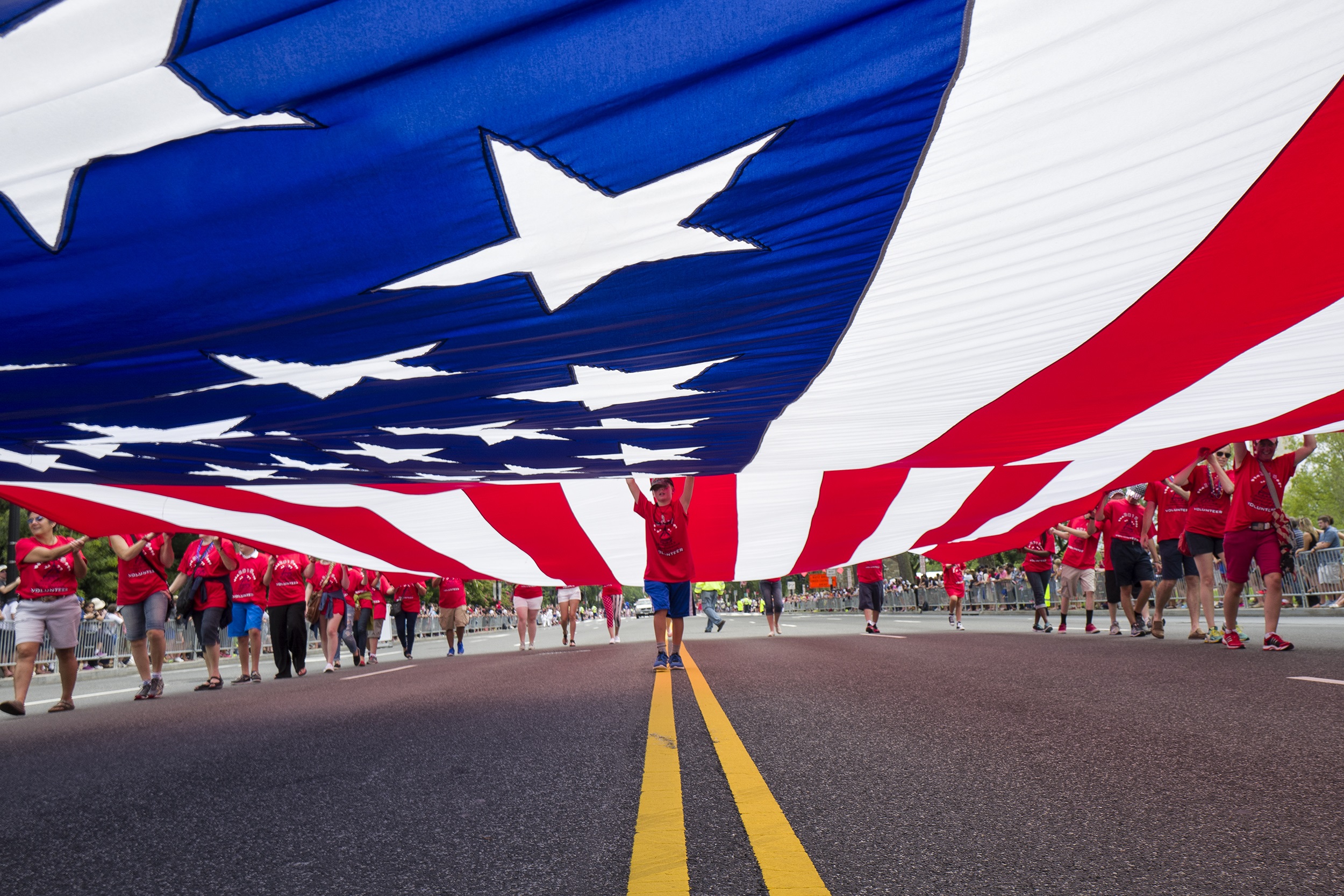Can America be 'independent' of virus on July 4 as Biden hopes?
The holiday goal will get Americans "motivated," the White House said Friday.
President Joe Biden is counting on Americans' love of freedom -- in this case freedom from COVID-19 -- by using the symbolic image of the Fourth of July backyard barbecue to persuade Americans to get the vaccine and follow health protocols.

"By July the 4th, there's a good chance you, your families and friends, will be able to get together in your backyard or in your neighborhood and have a cookout or a barbecue and celebrate Independence Day," Biden said in his first prime-time address to the nation Thursday night.
"After this long hard year, that will make this Independence Day something truly special," he said, "where we not only mark our independence as a nation but begin to mark our independence from this virus."
White House press secretary Jen Psaki said Friday the symbolic goal is to get Americans "motivated" to follow the rules by promising a payoff most everyone can relate to.
“We're talking about the American people being motivated and excited by the fact that -- that if they get vaccinated ... there will be access to vaccines, they will be eligible. And if they take steps to get vaccinated, to continue to wear a mask, to continue to observe social distancing, then looking ahead to July 4th as an aspirational moment where people can plan small get togethers in their backyard.” Psaki said.

But Biden and his health experts have added some major caveats: that the gatherings would need to be small, and that there should be no "large events with lots of people together." No large gatherings or stadiums opening up, Psaki said, but rather "small groups of friends and neighbors" in backyards.
Asked why that date was chosen, Psaki said by that time boosts in the vaccine supply should mean most American adults will either be vaccinated or have access to getting a shot.
With the country ramping up the number of daily vaccinations and the president's promise that all adults will be eligible to get shots by May 1, Psaki said that given current scientific and logistical estimates, the administration's public health and medical experts felt that by July 4 small gatherings could be safe.
Jay Van Bavel, an associate professor of psychology at New York University, noted that choosing that date can make a difference in how Americans respond.
“July 4 is part of the signature day of national identity for Americans," Van Bavel said. "And so doing that is symbolic, it's signaling that this is something we should all pull behind in every state, in every city, in every town, to try to accomplish.”
Biden's choice of a national holiday and a specific date can "build a sense of purpose," he said.
"So basically, what he's doing is setting a national goal, it's an ambitious one but also reasonable the way the vaccines have scaled up the last few months," Van Bavel said. "And it kind of reminds me in some ways of the goal to put a man on the moon by JFK that organized a lot of resources around an ambitious national goal to accomplish something that seemed impossible at the time."
Biden's goal has already drawn criticism from Republicans and other conservatives.

Sen. John Cornyn, R-Texas, asked why Americans had to wait until July to gather if vaccines would be available in May.
Rep. Madison Cawthorn, R-N.C., tweeted Americans don’t “need permission” to celebrate.
Biden said if we get vaccinated “There’s a chance” we can celebrate July 4th…
I have some news for you.
The American people and I do NOT need your permission to celebrate July 4th and this country.
— Madison Cawthorn (@CawthornforNC) March 12, 2021
Former Food and Drug Administration Commissioner Scott Gottlieb said small gatherings could be safe even sooner, along the lines of what the Centers for Disease Control and Prevention advised earlier this week.
“I think the majority of Americans are going to be getting together long before July,” Gottlieb said on CNBC Friday. "When people feel the risk declining because they’ve been vaccinated, because they see infection levels going down in many parts of the country, they’re going to be willing to take more risk because they sense that their vulnerability is declining. And you know what? They’re right."
ABC News’ Ben Gittleson contributed to this report.



